(ESP/ENG) Modales para bebés - Vida de mama | Baby manners - Mom Life
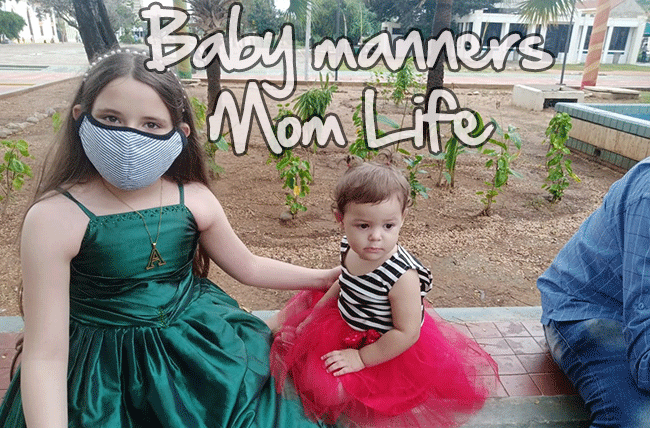

Hola mis queridos Hiver's, el día de hoy hablarles sobre los modales, estás reglas que establece la sociedad para comportarnos ante las personas, en esta ocasión hablaré sobre el comportamiento de los niños, cuando somos padres descubrimos un maravilloso mundo en la paternidad, pero este ser torna gris cuando tenemos niños que se salen de control porque no les damos una buena educación y es que por más que lo intentes con regaños y gritos no lograrás que ellos se comporte de buena manera por eso hoy hablemos de modales.
Hello my dear Hiver's, today we are going to talk about manners, these rules that society establishes to behave in front of people, this time I will talk about the behaviour of children, when we are parents we discover a wonderful world in parenthood, but this world turns grey when we have children that get out of control because we don't give them a good education and no matter how hard you try with scolding and yelling you will not get them to behave in a good way, that's why today we are going to talk about manners.
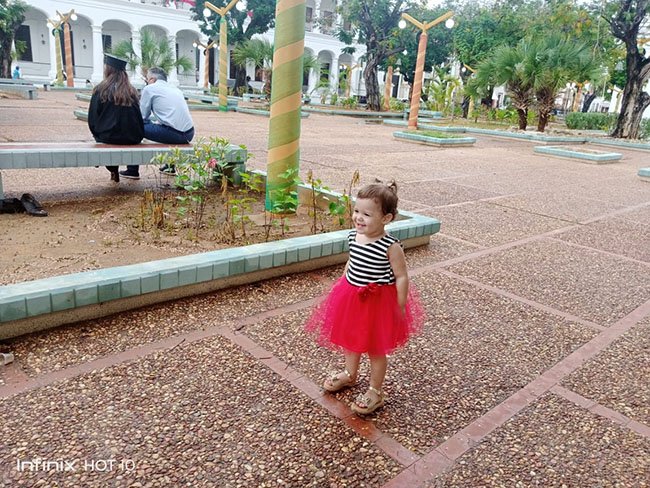
Desde que los niños comienzan a dar sus primeros pasos, los padres empiezan a decirle palabras, porque al pasar lo meses ellos tienen la capacidad de entender algunas cosas en su entorno yo pienso que todo depende de que tanto le hables y bueno en esta pandemia nos ha tocado hablarles mucho a los bebes, ya que estuvimos bastante dedicados al hogar, sin embargo, al mismo tiempo está nueva generación nació en casa y no se acostumbró a las salidas que quizás con frecuencia antes hacían los padres a los centros comerciales, así que esto no justifica que los niños sean mal educados, pero sí que su actitud sea diferente, quizás algunos sean penosos, o un poco distraídos entre la bulla, también apáticos a la presencia de extraños.
Since children begin to take their first steps, parents begin to say words to them, because as the months go by they have the ability to understand some things in their environment, I think it all depends on how much you talk to them and well, in this pandemic we have had to talk a lot to the babies, because we were quite dedicated to the home, however, at the same time this new generation was born at home and did not get used to the outings that parents used to go to shopping centres, so this does not justify that children are badly educated, but that their attitude is different, perhaps some are embarrassed, or a bit distracted by the noise, also apathetic to the presence of strangers.
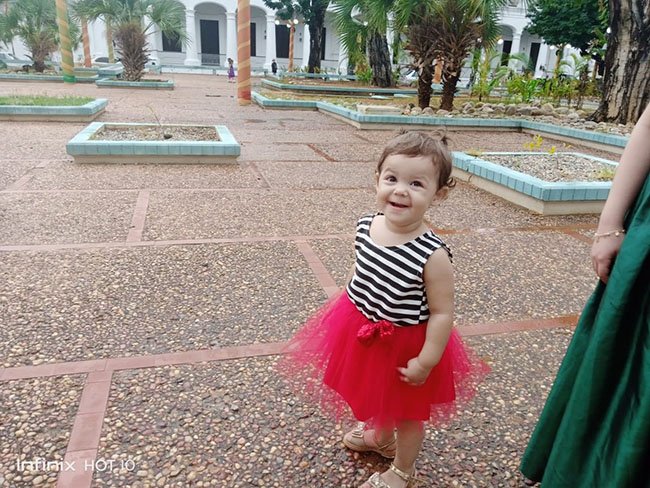
Lo primero que aprenderán a manifestar es hola, aló y chao, “Por favor” y “gracias", disculpa, Ejemplo: dame eso por favor, gracias bebé para que se acostumbre.
Silencio, indicando con el dedo en los labios yo le digo "la lechuza hace... Y ella con su dedito en los labios pronuncia el sonido (shhh).
Cuando hacen algo incorrecto como tener una actitud de altanería que es muy normal (pataleta) le
podemos expresar: eso no se hace porque los bebés siempre deben estar felices, para ver una sonrisa, ellos se molestan por segundos.Enséñale su nombre y practícalo a diario ¿cómo te llamas?, ¿Cómo estás?.
Ellos repetirán todo lo que dices debes tener cuidado con el vocabulario, porque ellos aprenderán cada palabra que sea común incluso las malas palabras
Enseñarlos a no meterse los dedos en la nariz y taparse cuando tosa
Muy importante que aprendan a sentarse en un lugar sin estar brincando, muchas veces a las personas le molestan los niños inquietos y si en efecto no conocemos sobre esto somos padres los niños siempre son entendidos por los adultos y por eso en la casa hay que meterle carácter y enseñarles respeto y valor tanto en la casa como en la calle, muchas veces los culpables somos nosotros mismos porque no los estamos enseñando a respetar una pena es necesario enseñarle a respetar adultos a esperar.
The first thing they will learn to say is hello, hello and bye, "Please" and "thank you", excuse me, Example: give me that please, thank you baby to get used to it.
Silence, indicating with the finger on the lips I say "the owl does.... And she with her little finger on her lips pronounces the sound (shhh).
When they do something wrong such as having a haughty attitude which is very normal (tantrum) we can express to them We can express: you don't do that because babies should always be happy, to see a smile, they get upset for seconds.
Teach them their name and practice it daily, what's your name, how are you?.
They will repeat everything you say you must be careful with the vocabulary, because they will learn every word that is common even the bad words.
Teach them not to put their fingers in their nose and to cover their nose when they cough.
Very important that they learn to sit in a place without jumping up and down, many times people are bothered by restless children and if we do not know about this we are parents, children are always understood by adults and that is why at home we have to teach them respect and value both at home and in the street, many times we are the ones to blame because we are not teaching them to respect a penalty, it is necessary to teach them to respect adults and to wait.
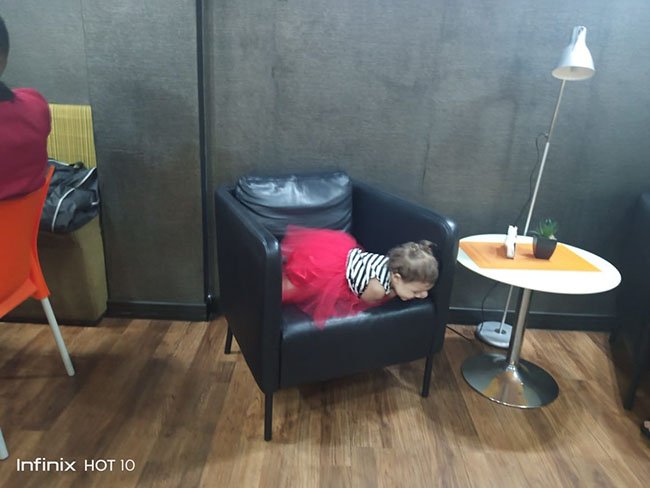
He llegado a la conclusión de que en este siglo existen varios tipos de padres
I have come to the conclusion that in this century there are several types of fathers
Les enseñan a utilizar la tecnología y los sumergen en contenidos multimedia o juegos. aprenden solos, y solo interactúan para comer o dormir
Consientes a sus hijos para no verlos llorar y les dan todo, son tan permisivos que los niños terminan siendo groseros porque de una u otra manera hacen lo que quieren
No permiten ningún tipo de tecnología, pasan el día en el cuarto o contemplando la TV, la mayoría de las veces son obligados a hacer las cosas porque usan el chantaje.
Mamá lo consciente y le deja hacer todo, pero papá le pone carácter y hay una estabilidad o viceversa.
Esos niños que pasan el día con los abuelos y son educados por los abuelos porque los padres trabajan y son niños que se adaptan a las costumbres de los abuelos.
Cuando mamá es ama de casa y le enseña a regar las plantas y los enseñan a valor a los animales y las plantas, ayudan en los quehaceres del hogar y reciben mucha atención.
Todos los niños reciben educación, sin embargo, cuando consentimos mucho a los niños se ponen malcriados y creen poder hacer lo que quieran por eso hay que ponerles límites para que aprendan a respetar sin pegarles, sin castigarlos fuerte, solo enseñándoles valores y explicando por qué no deben hacer las cosas así.
They teach them how to use technology and immerse them in multimedia content or games. they learn on their own, and only interact to eat or sleep.
They pamper their children so they don't see them cry and give them everything, they are so permissive that the children end up being rude because one way or another they do what they want.
They don't allow any kind of technology, they spend the day in the room or contemplating the TV, most of the time they are forced to do things because they use blackmail.
Mum consciences him and lets him do everything, but dad puts character and there is a stability or vice versa.
Those children who spend the day with the grandparents and are brought up by the grandparents because the parents work and they are children who adapt to the grandparents' ways.
When mum is a housewife and teaches them to water plants and teaches them to value animals and plants, they help with household chores and receive a lot of attention.
All children receive education, however, when we spoil children too much they become spoiled and think they can do whatever they want, so we must set limits so that they learn to respect without hitting them, without punishing them hard, just teaching them values and explaining why they should not do things like that.
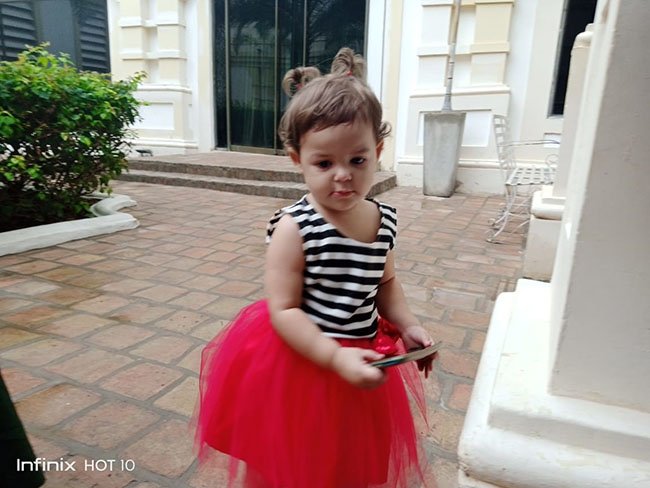
Hace poco salí con mi bebé y soy madre primeriza, me di cuenta de que estaba cometiendo un error mi hija al llegar a los muebles de un teatro se quiso subir con los zapatos yo le dije que no podía y para no hacerla llorar la tomé en los brazos tarde, al mismo día llegamos a un restaurante y mientras esperábamos la comida y conversábamos mi hija se bajó de su asiento Y fue directo a unos muebles hizo lo mismo que hace en nuestra casa, ella tiene 18 meses y en ese tiempo es la primera vez que la llevó a un restaurante a mí me dio mucha vergüenza porque cuando yo la quise bajar ella quiso llorar otra vez yo la tomé en brazos y le dije no te puede sentar ahí te pueden regañar ven quédate con mamá ella no quedó muy convencida luego la hice reír y se me olvidó, pero entendí que era un error de mi parte porque ella los muebles de mi casa se sube y se sienta e incluso se levanta y se esconde o se asoma para ver a su papá entonces debo enseñarle a no subirse en los muebles para no pasar este tipo de pena y claro es entendible en la primera vez que nos pasa, pero ya sé que no tiene que ocurrir y como ella tiene 18 meses yo estoy a tiempo de corregirla es por esto que tenemos que enseñar a nuestros hijos a ser obediente y a tener modales.
I recently went out with my baby and I am a new mother, I realized that I was making a mistake, my daughter wanted to get on the furniture in a theatre with her shoes, I told her she couldn't and so as not to make her cry I took her in my arms late, the same day we arrived at a restaurant and while we were waiting for the food and talking my daughter got off her seat and went straight to some furniture and did the same thing she does in our house, She is 18 months old and this is the first time she has taken her to a restaurant, I was very embarrassed because when I wanted to put her down she wanted to cry again, I took her in my arms and told her she can't sit there, they can scold you, come stay with mummy, she was not very convinced, then I made her laugh and she forgot about it, but I understood that it was a mistake on my part because she climbs and sits on the furniture in my house and even gets up and hides or looks out to see her dad so I have to teach her not to climb on the furniture to avoid this kind of pain and of course it is understandable the first time it happens to us, but I know it doesn't have to happen and as she is 18 months old I am in time to correct her, this is why we have to teach our children to be obedient and to have manners.
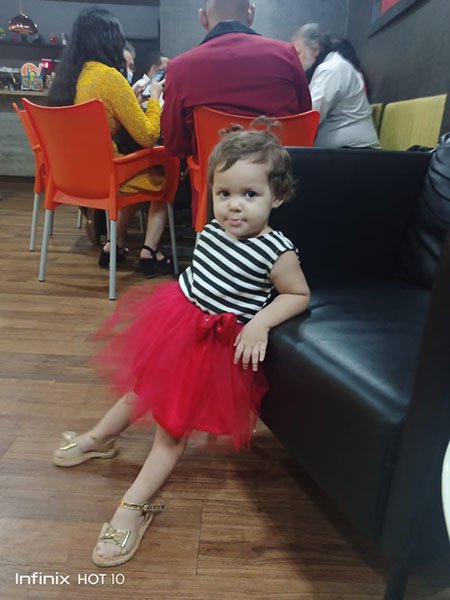



Recursos Utilizados | Resources Used
La imagen del banner fue editada con la aplicación Photoshop CS6| The image of the banner was edited with the Photoshop CS6 application
Las imágenes del divisor y semanario de preguntas, fueron tomadas de la comunidad Motherhood | The images of the divider and weekly questionnaire were taken from the Motherhood
Traducido con www.DeepL.com | Translated with www.DeepL.com/Translator





Enseñar a los niños es una experiencia fascinante. Me gustó esa clasificación que presentas, en estos tiempos se han tergiversado muchas cosas. Los niños necesitan aprender las normas y a veces hay que reprenderlos.
Que grande está la niña, hace nada que era bebé. Excelente publicación mi querida @soyalex. Que estés bien. Bendiciones para la familia.